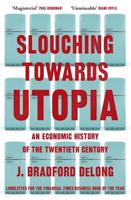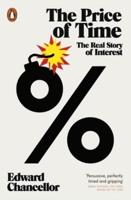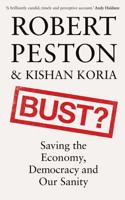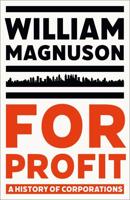Publisher's Synopsis
A hopeful vision of the post-covid-19 world of work and society, with practical guidance for how to get there.
In this entertaining, thought-provoking, and comprehensive guidebook on work flexibility, Robert Hawkins builds on new and old management theories, case studies, interviews, and his own personal journey from rigidity to flexibility to show leaders how to free hundreds, thousands, millions of people from a way of working that doesn't meet expectations for modern life. Humans Are Not Robots provides theory and evidence to show the urgent need for flexibility for all and then offers practical guidance on rolling out sustainable and successful (and profitable) flexibility campaigns.
Hawkins explores various types of flexibility, including remote work, flexitime, compressed workweeks, and job sharing, as well as those not commonly discussed (reduced hours with full pay, return-to-work internships, flexibility in manufacturing, healthcare, construction). He delves into the science of human needs theory to demonstrate how the traditional nine-to-five workplace creates unsustainable lives and shows that, with even small changes, leaders in any industry can use flexibility to:
In this entertaining, thought-provoking, and comprehensive guidebook on work flexibility, Robert Hawkins builds on new and old management theories, case studies, interviews, and his own personal journey from rigidity to flexibility to show leaders how to free hundreds, thousands, millions of people from a way of working that doesn't meet expectations for modern life. Humans Are Not Robots provides theory and evidence to show the urgent need for flexibility for all and then offers practical guidance on rolling out sustainable and successful (and profitable) flexibility campaigns.
Hawkins explores various types of flexibility, including remote work, flexitime, compressed workweeks, and job sharing, as well as those not commonly discussed (reduced hours with full pay, return-to-work internships, flexibility in manufacturing, healthcare, construction). He delves into the science of human needs theory to demonstrate how the traditional nine-to-five workplace creates unsustainable lives and shows that, with even small changes, leaders in any industry can use flexibility to:
- Make work a vital and fun part of life again
- Boost productivity, engagement, and innovation
- Reduce gender inequality and domestic violence
- Delay retirement of workers and mitigate the issues of an ageing population
- Fight obesity and reduce the burden of poor health on individuals and health systems
- Ensure that people maintain needed skills and relevance in the face of increased automation and uncertainty
- Impact climate change and do all of this while increasing profits.







